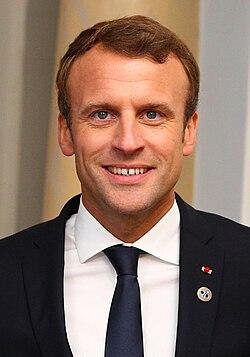French President Emmanuel Macron faces mounting pressure to appoint a new prime minister as the nation braces for widespread protests. With public discontent simmering over recent government policies, the leadership shake-up comes at a critical juncture, raising questions about the direction of Macron’s administration ahead of planned demonstrations. The developments signal escalating political tensions in France, as the government seeks to quell unrest and restore stability.
Macron Faces Increasing Urgency to Appoint New Prime Minister Amid Rising Public Unrest
President Emmanuel Macron’s administration is navigating turbulent waters as public dissatisfaction escalates ahead of planned nationwide demonstrations. The demand for a new prime minister has intensified among political observers and grassroots movements alike, reflecting growing impatience with the current government’s handling of economic inequalities and social reforms. Critics argue that a leadership shakeup could restore confidence and quell unrest, emphasizing the urgent need for policies that resonate with the everyday struggles of French citizens.
Key factors driving calls for leadership change include:
- Rising inflation and its impact on household incomes
- Controversial pension reform plans drawing widespread criticism
- Escalating tensions between government forces and protest groups
- Political parties pressing Macron to outline a clear path forward
| Issue | Public Concern | Potential Impact |
|---|---|---|
| Inflation | High cost of living | Lower approval ratings |
| Pension Reform | Job security fears | Mass protests |
| Leadership | Lack of trust in current PM | Calls for cabinet reshuffle |
Analyzing the Political Implications of Leadership Change Ahead of Nationwide Protests
Political observers suggest that President Macron’s imminent decision to appoint a new Prime Minister goes beyond mere administrative reshuffling. It is a strategic maneuver aimed at stabilizing his government as growing unrest threatens to undermine public confidence. With the nationwide protests looming, the choice of a successor will reflect Macron’s effort to either adopt a more conciliatory tone or double down on his reform agenda. Political analysts argue that a pragmatic, widely respected figure could diffuse tensions, whereas a hardliner may deepen divisions.
The political landscape is complicated by the fact that multiple factions within Macron’s party hold divergent expectations for the incoming Prime Minister. Below is a summary of key considerations shaping the decision:
- Public Perception: Balancing reformist zeal with empathy to protesters’ concerns.
- Party Dynamics: Maintaining unity between progressive and moderate wings.
- Opposition Pressure: Responding to calls for meaningful policy concessions.
- International Outlook: Projecting stability amidst global economic uncertainty.
| Potential Candidate | Political Profile | Likely Impact |
|---|---|---|
| Élisabeth Borne | Technocratic, reform-driven | Continued reforms, may fuel protests |
| Christophe Castaner | Centrist, conciliatory | Potential easing of tensions |
| Barbara Pompili | Green, progressive | Appeal to youth and activists |
Strategic Recommendations for Macron to Navigate Crisis and Restore Public Confidence
To effectively address mounting tensions and reverse waning public trust, President Macron must prioritize a clear and decisive communication strategy that emphasizes transparency and inclusivity. Engaging directly with key social groups and stakeholders through open forums can help bridge divides and foster a shared path forward. Additionally, appointing a new prime minister with a track record of crisis management and strong ties to both reformist and traditional factions could signal a renewed commitment to stability and responsiveness.
Policy recalibration is crucial, with a focus on balancing economic reform and social welfare to appease widespread demands. Swift legislative action addressing core issues such as labor rights, pension reforms, and economic inequality will demonstrate attentiveness. Macron’s administration should also enhance its crisis response mechanisms by:
- Deploying rapid response teams to mitigate localized unrest
- Increasing transparency about reform timelines and expected outcomes
- Leveraging digital platforms for real-time public feedback
- Promoting bipartisan dialogue within the National Assembly
| Strategic Focus | Expected Outcome | Timeframe |
|---|---|---|
| New PM Appointment | Renewed Political Confidence | Immediate |
| Community Engagement | Improved Public Trust | Short Term (1-3 months) |
| Policy Adjustments | Social Stability | Medium Term (3-6 months) |
Wrapping Up
As France braces for widespread protests in the coming days, all eyes remain on President Emmanuel Macron’s next move. The decision to appoint a new Prime Minister could signal a strategic shift aimed at easing mounting public discontent. With tensions running high and the nation poised on edge, the political landscape in Paris is set for a critical moment that may shape the country’s trajectory in the weeks ahead.




